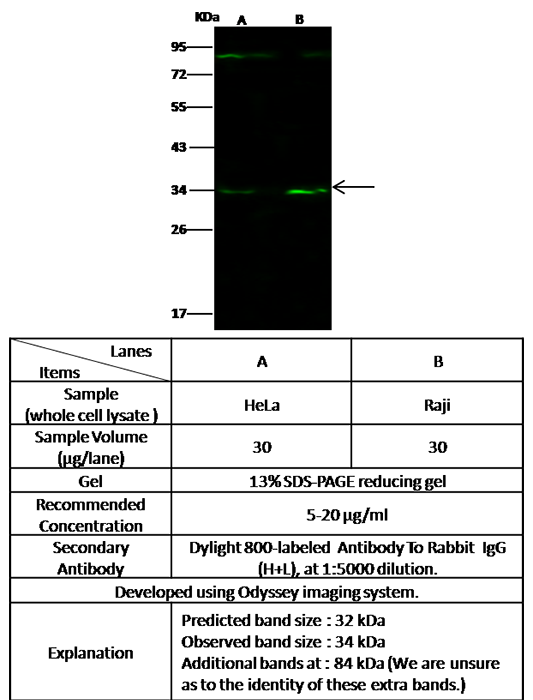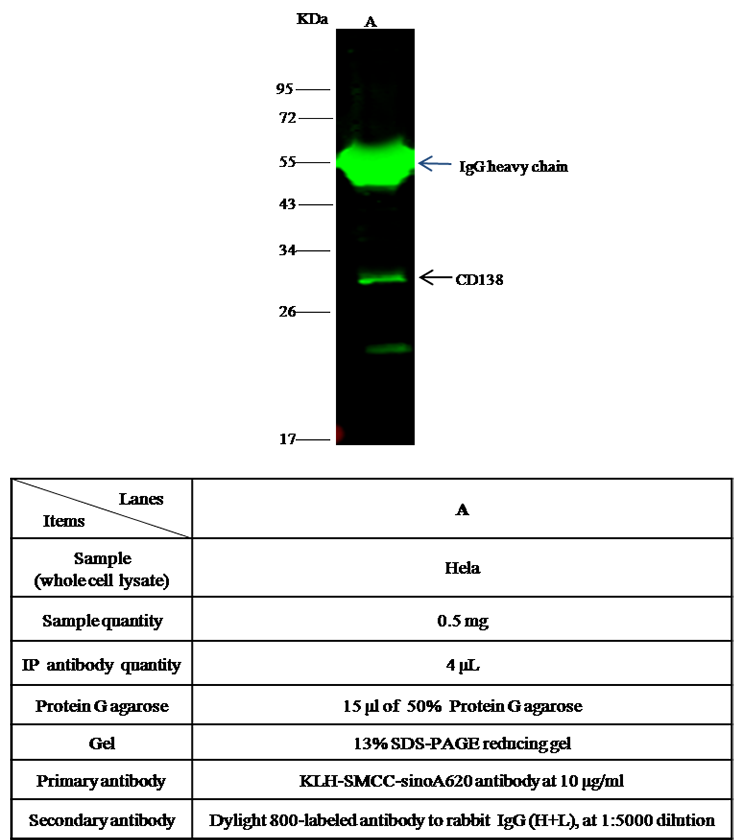-
Product Name
Anti-SDC1 antibody
- Documents
-
Description
Rabbit Polyclonal to Human SDC1
-
Tested applications
WB, IP
-
Species reactivity
Human Syndecan-1 / CD138 / SDC1
-
Alternative names
CD138 antibody; CD138 antibody; SDC1 antibody; Sstn antibody; syndecan antibody; Syndecan-1 antibody; Syndecan-1 antibody; SDC antibody; CD138 antibody; SYND1 antibody; syndecan antibody; Sstn antibody; Synd antibody; CD138 antibody; Synd1 antibody; syn-1 antibody; AA408134 antibody; AA409076 antibody; AA408134 antibody; AA409076 antibody; SDC antibody; Sdc1 antibody; syn-1 antibody; Synd antibody; Synd1 antibody; SYND1 antibody; syndecan antibody
-
Isotype
Rabbit IgG
-
Preparation
Produced in rabbits immunized with a synthetic peptide corresponding to the center region of the Human Syndecan-1 / CD138 / SDC1, and purified by antigen affinity chromatography.
-
Clonality
Polyclonal
-
Formulation
0.2 μm filtered solution in PBS
-
Storage instructions
This antibody can be stored at 2℃-8℃ for one month without detectable loss of activity. Antibody products are stable for twelve months from date of receipt when stored at -20℃ to -80℃. Preservative-Free.
Sodium azide is recommended to avoid contamination (final concentration 0.05%-0.1%). It is toxic to cells and should be disposed of properly. Avoid repeated freeze-thaw cycles. -
Applications
WB: 5-20 μg/ml
IP: 4-8 uL/mg of lysate
-
Validations

Human Syndecan-1/CD138/SDC1 Western blot (WB) 15162

Human Syndecan-1/CD138/SDC1 Immunoprecipitation(IP) 15163
-
Background
Syndecan-1 also known as SDC1 and CD138, is the most extensively studied member of the syndecan family. It is found mainly in epithelial cells, but its expression is developmentally regulated during embryonic development. Syndecan-1/SDC1/CD138 has been shown to mediate cell adhesion to several ECM molecules, and to act as a coreceptor for fibroblast growth factors, potent angiogenic growth factors involved also in differentiation. Syndecan-1/SDC1/CD138 expression is reduced during malignant transformation of various epithelia, and this loss correlates with the histological differentiation grade of squamous cell carcinomas, lacking from poorly differentiated tumours. In squamous cell carcinomas of the head and neck, positive syndecan-1 expression correlates with a more favourable prognosis. Experimental studies on the role of Syndecan-1 in malignant transformation have shown that Syndecan-1/SDC1/CD138 expression is associated with the maintenance of epithelial morphology, anchorage-dependent growth and inhibition of invasiveness in vitro.
Related Products / Services
Please note: All products are "FOR RESEARCH USE ONLY AND ARE NOT INTENDED FOR DIAGNOSTIC OR THERAPEUTIC USE"
